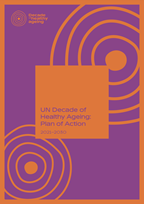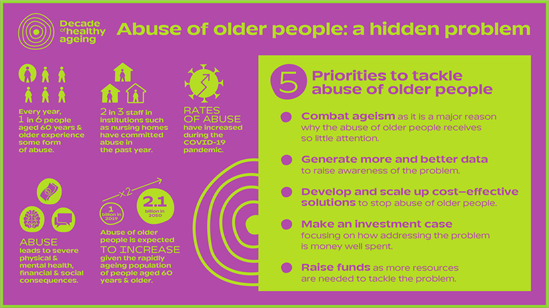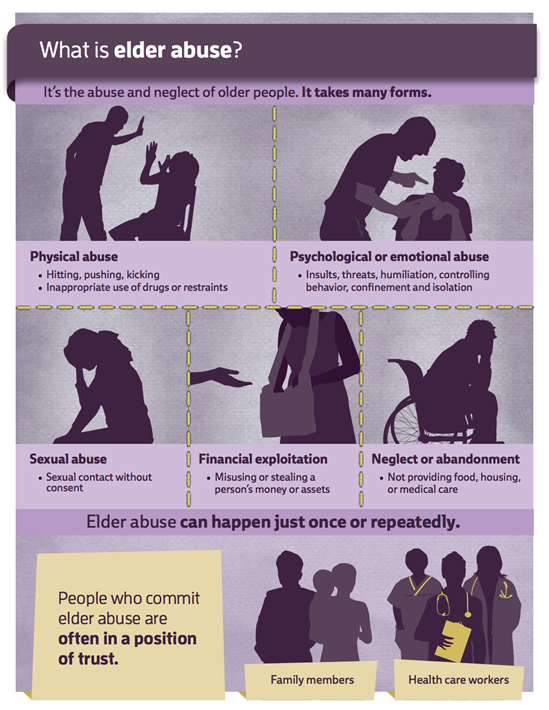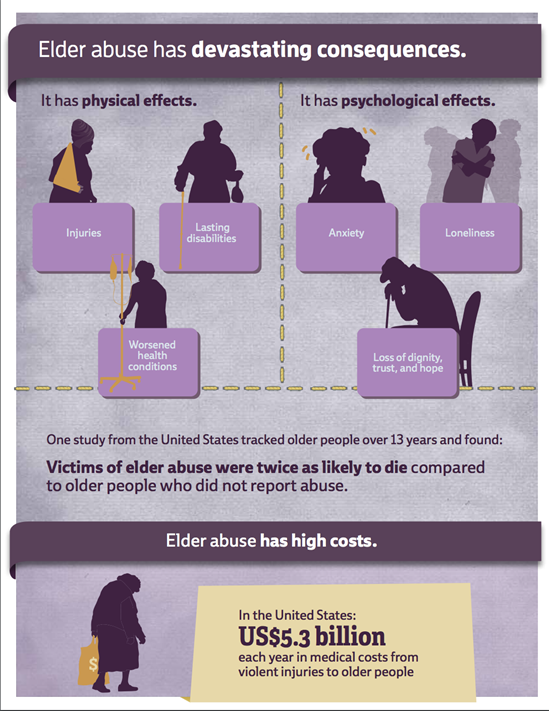Preventing abuse of older people
Around 1 in 6 people aged 60 years and older experience some form of abuse in community settings every year. Rates in institutional settings, such as nursing homes and long-term care facilities, are higher still.
The abuse of older people, also known as elder abuse, is defined as a single or repeated act, or lack of appropriate action, occurring within any relationship where there is an expectation of trust, which causes harm or distress to an older person. This type of violence constitutes a violation of human rights and includes physical, sexual, psychological and emotional abuse; financial and material abuse; abandonment; neglect; and serious loss of dignity and respect.
The abuse of older people can lead to serious physical injuries and long-term psychological consequences, increased risk of nursing home placement, use of emergency services, hospitalization and premature death.
In line with the UN Decade of Healthy Ageing (2021–2030), WHO and its partners are collaborating to address abuse of older people through the following initiatives:
- Mapping the global evidence on all aspects of abuse of older people – its prevalence, consequences, risk and protective factors, and interventions to prevent, detect, and respond to it;
- Identifying the reasons abuse of older people has not received greater political priority;
- Developing and implementing a global multi-partner strategy to address abuse of older people within the UN Decade of Healthy Ageing.










